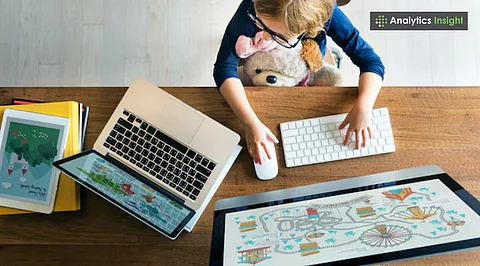

Projects like Calculator, To-Do App, and Quiz help build real logic and coding habits early on.
Weather App, Currency Converter, and Chatbot show how code connects with real-time user data.
Portfolio Website, Flashcards, and Password Generator balance creativity with core coding practice.
Getting started with coding has become much easier now. Many students try out free websites, short online courses, or even tools that help with writing code. After the basics, coding becomes far more confusing. Most people don’t know what to build next. That’s where small coding projects help. They are simple to make, work well, and are good for practice. These are some beginner projects that are easy to start and still fun to create.
This is like a small website that shows school projects, hobbies, or anything someone has built. It teaches how to use HTML, CSS, and a bit of JavaScript. The website can be put online using GitHub Pages. Many students use it to show their progress in coding.
Almost every aspiring developer builds this beginner coding project. It takes input, does basic math, and shows the answer. Python or JavaScript is commonly used for this. Later, it can be improved by adding features like dark mode or showing the history of calculations.
A basic game where the computer picks a number, and the player keeps guessing. After each guess, the game says if it’s too high or too low. It helps with using loops, random numbers, and if-else statements.
Apps like these act like a digital notepad. Tasks can be written down, marked as done, or removed. It teaches how to store data and update what’s shown on the screen. Many beginners build this to learn how apps handle lists and updates.
This app shows the weather after typing a city name. It uses data from websites like OpenWeatherMap. It teaches how to fetch real-time data from the internet and also how to handle cases when the data doesn’t load properly.
The currency converter tool changes money from one currency to another using online exchange rates. It uses math, takes user input, and works with live data. It’s a good project for learning how to connect code with real-world data.
The quiz app shows questions and gives scores based on answers. Some versions use flashcards to help with fast learning. It helps in storing questions, checking answers, and updating scores. Timers and high scores can be added later to make it more interesting.
This tool creates strong passwords. It lets users pick how long the password should be and what kind of characters to include. It helps with learning how to use strings, random numbers, and simple logic. Many also add a copy button for ease.
The counter collects the number of words, sentences, or characters in a text. It’s good for practicing how to take input, clean it, and check text. Later, it can be made better by adding things like checking for repeated words or reading from files.
This is a simple bot that replies to certain keywords. It works by checking user input and giving fixed responses. It uses basic logic, loops, and conditionals. Later, it can be improved using better tools or connected to bigger language models.
These are all useful projects that provide practical insights about the tech field. None of the programs are complex. At the same time, they help in learning how to solve real problems using code. Each project gives practice in writing, testing, and fixing code. That is how coding skills are improved practically.
Instead of jumping into something too big, these projects are better for building confidence. They can also be upgraded later with better design or extra features. For someone new to coding, these are good steps after finishing the basics.
You May Also Like:
